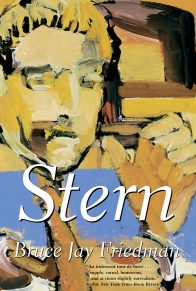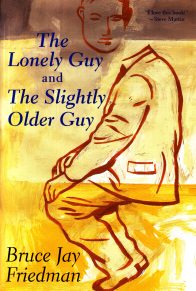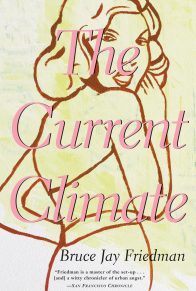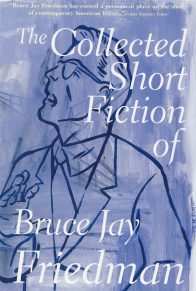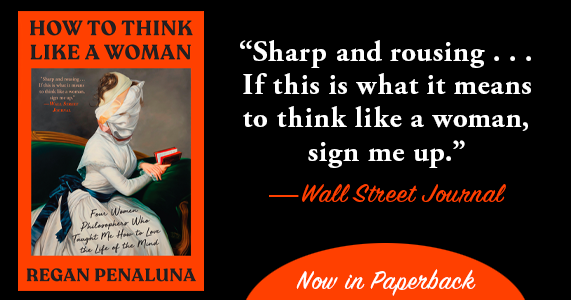At the time Apollo 11 took off for the moon, Harry Towns was in a reclining chair beside the pool at a Beverly Hills hotel, taking advantage of the first stretch of absolutely perfect weather he had run into in Los Angeles. On his previous trips, whenever it rained or was generally dismal, someone would say, “I don’t understand. It’s never done this before, this time of year.” When something went wrong in Los Angeles, people tended to say it was the first time in memory it had ever happened that way. Things didn’t go wrong that often. And there was certainly nothing to quibble about on this trip. A poolside philosopher, sitting next to Towns, said the swimming area at the hotel was probably the only enclave in the world in which people were totally oblivious of that trip to the moon. “That’s because they probably haven’t figured out a way to make money on it,” the fellow said. Towns was thinking about the moon landing, but in the cool, constant L. A. sun, he could not honestly say it was pressing heavily on his mind.
He was winding up his West Coast trip, milking the last juice out of it, and had it worked out so that he would stay slightly involved in the flight while in California and then see the actual landing on the moon when he was back in New York. His son was away at summer camp and had asked Towns to round up at least twenty copies of the New York Times edition that reported the landing. “Can you imagine what copies of the Wright brothers newspaper would be worth today?” he had asked. Towns thought his son was very enterprising and made a sacred pledge to round up the papers, although secretly he decided ten was plenty for the kid. Meanwhile, he was busy loving California. He had made some short probing trips to the Coast before, barely taking time to get unpacked, but this had been a one-month visit and it was as though some of the seeds he had scattered earlier had come into flower. People fell in love with California by the carload, but he wondered if anyone had experienced quite the love affair he was having with the state. Did anyone love the orange juice as much as he did? It knocked him on his ear every time he had a fresh glass of it in the morning. The same went for the lettuce. Whoever heard of lettuce that had so much bite and spank and crunch to it? He loved the salad oils and so far he had not come across a wine that didn’t taste marvelous. He began to guzzle it like water and that was another thing: he never got drunk in Los Angeles no matter how much he had to drink. It was like being in a super-rarified health simulator that didn’t let you get drunk. In the way of many New Yorkers, he had spoken a bit too fondly of New York restaurants on the plane to L. A. and, by implication, had been a bit disdainful of restaurants anywhere else. The fellow next to him, who had been quite jovial up to that point, suddenly dropped his voice, and in a surprisingly ominous, almost cruel tone, asked, “Which restaurants did you go to in Los Angeles?”
“I believe I’ve offended you,” Towns said.
“I believe you have,” said the fellow. Then, in the style of a trial attorney with a witness on the hook, he asked Towns if he had been to such-and-such a place and such-and-such a place, rattling off a dozen winners and not waiting for Towns to say he hadn’t heard of this one or hadn’t gotten around to that other one. The once-friendly fellow then gave Towns the world’s thinnest smile and went to sleep. In Los Angeles, Towns tried a few of the fellow’s suggestions and had to admit they were first-rate, although they tended to go in as heavily for ceremony as they did for food. A waitress would come over, curtsy, and say, “I am Mary Jo Smith, your waitress for tonight, and here is your special chilled fork for the Braz”lia Festival Salad.” If anyone had tried that on him in New York, he or one of his friends would have done twenty minutes on it, probably right in front of the offending Mary Jo Smith. And they would have been wrong. Except that you could not admit that you liked elaborate curtsied ceremonies in New York. It seemed perfectly all right in Los Angeles.
More than the restaurants and movie theaters and homes, it was the getting to them that he really enjoyed. He loved getting dressed in the cool shady early evening and then stopping in the middle since all you ever had to be was half-dressed in L. A. It was not very typical of his life, but he had once taken a journey that had brought him to ancient walled-up cities in Central Asia. It was probably the only quick trip anyone had ever taken to that part of the world. He had been scouting a movie location and was in and out in five days. He would not have wanted the job of convincing anyone of this, but that high, dizzy, pulsing sensation he experienced each time he approached the Strip was every bit as profound as what he felt upon first seeing the outlines of Samarkand. Always he was astonished by the cleanness of the light along the Strip, the slow, clean tumble of beautiful blond children, the outrageous brilliance of the high posters advertising Lake Tahoe entertainment trios but looking more like huge films shown in the sky. How did they get those pictures so large and startling and clear”.
He was aware, of course, that much of it had to do with him and not California. He was fond of saying, “When I get to the West Coast, there’s absolutely no hassle.” He used such expressions in California. He said sullen people were ‘downers,” an unfortunate experience was “a bad trip,” and even caught himself describing a lively woman as a ‘dynamite chick” He did not talk that way in New York. There was always someone who would make a face. In New York, the pressure was on to come up with new ones. You could get away with a slightly tired expression if you were careful to put it in italics. Or if it was really old, you were safe in bringing it back. Now those were the rules, take it or leave it.
In California, Harry Towns had no debts, no broken marriage, no glum and heartbroken feelings of work undone. Let him pass a day in New York without “accomplishing” something and he would feel his stomach slowly being drawn out of him. In California, there were always going to be other days. There was always plenty of time. He would feel the drumbeat of excitement the moment he got on the plane and headed for the West Coast. Forty-five minutes on a plane to anyplace else was a lifetime for Harry Towns. But the five-hour run to Los Angeles was a luxury.
He was a stranger in L. A., and he intended to keep it that way. There was no one looking over his shoulder, no one taking notes. He would not arrive in Los Angeles so much as “roll into town” in the style of mysterious Western heroes slowly loping into strange Montana outposts. He preferred keeping relationships (not a favorite word –but they hadn’t come up with a better one) casual, transient, and when he got to L. A. there was no one he raced to the phone to call. His one close friend was a chemist who had never gotten married and was arrested, socially, at the college level; he loved to reminisce about beautiful sorority girls they had both known as Lambda Chi’s at Purdue. Most were named Jo Ann or Sally Anne or Annie Lou, names in that family. This fellow had been in a mild, almost imperceptible depression from the moment Towns met him–and it was catching–so Harry Towns had dinner with him only once a trip. It was no fun being with someone who was always “a little low.”
Harry Towns had a sprinkling of other friends in L. A., a bartender here, a waitress there, some people in the film colony. One in particular would gather a small group of guests and show them spanking new rough cuts of feature-length films after first distributing old-fashioned candy bars that were a foot long. That was fine once in a while. But what Harry Towns loved most to do was set out in the evening with no date and no particular destination, relying on the peculiar sense of recklessness that possessed him in California. In New York, he might be struck by the beauty of a salesgirl, flirt with her a bit, and then settle for a week’s worth of tormented dreams. In Los Angeles, if a girl fell into an intriguing posture, more often than not he would simply scoop her up and whisk her away for the night. Or at least take a good shot at it. In most situations, he did not have the faintest idea of what he was going to do. It made him feel dangerous, and this turned him into exciting company for himself. He felt like a loaded gun. In the event his nightly quests for adventure ended up a bit wilted, he had a few fallback positions. The nostalgic chemist was one. There was a slightly over-the-hill TV ingenue who would generally take him in. She was double-jointed and knew erotic postures which she would fall into the moment he opened the door. He also knew one late-night club where he could count on a few familiar faces.
Harry Towns was aware, too, of a special tribe of long-legged golden women who roamed the area, evading him, dancing slightly beyond his reach. Some called them vacant, mindless, not worth the trouble. Dingalings. Subject them to close inspection and you would see the flaws. A dark-haired dancer he knew saw him staring at a pack of them and said, “They’re not worthy of you.” But how he yearned for them. On previous trips, his adventures had been with cashiers, hustlers, leftover women on the frayed corners of L. A. life. But he had always felt an awareness of that golden tribe, eyes aloof, carriage regal, long hair trickling down delicious tan shoulders. On this trip, it had somewhat come together for him. Early on, he found an angry one. Angry when he met her, angry in bed, skulking off in a furor after a night of angered, begrudging love. She told him that, yellow hair, perfect legs, and all, she had been badly manhandled by an actor with a marred career. Perhaps what really irritated her was that Harry Towns had trapped her, straggling beyond the golden caravan. In any case, she was an official card-carrying member of the tribe. He had made contact. Soon after, he found another, standing high and golden on a stationery store ladder. Dusting boxes. “A girl like you dusting?” he said, not the most spectacular remark. But she went for it. All things were possible in Los Angeles. “Actually,” she said, Tve been looking for something with more bite to it.” He took her back to the hotel and at one point made her get out of bed and stand on a ladder, stationery-store style. Was he some kind of ladder freak? Even if he was, it was all right with her. Watching her that way, he fought for his breath. He had one of those extraordinary sun girls up on a ladder, tan legs straining, just for him. L. A. was some town.
It had been that kind of trip–fat, rich, lazy, most of the treasures of Beverly Hills one room-service call away. Now, at poolside on a late Friday afternoon, Towns felt the first stirrings of regret at having to leave Los Angeles. His work was completed. If he stayed any longer, he would have to pay his own bills. Not an attractive prospect for Harry Towns. All dollars aside, it struck him that part of the magical fun of Los Angeles was having someone else pay your way. They knew exactly how to pay you, too. The right style. After he had arrived on this trip, he had told his producer he was “a little short.” That afternoon, he found twenty one-hundred-dollar bills in his hotel mailbox; they were so crisp and new he could shave with them. For all he knew, he may even have been losing a few thousand on the deal. That didn’t seem important. Having those razor-sharp bills in his pocket–and getting them so fast–made everything seem fine.
Harry Towns had to visit his son at summer camp within the next week, so he would be leaving in any case. He had promised to store up anecdotes about film stars for the youngster. So far Towns had only run into stars of Forties movies who weren’t going to mean anything to the boy. He reminded himself to go that night to places where the stars hung out and try to see some for the boy so he could report on what they were up to.
The crowning touch to this trip had been a lovely divorcee who had appeared at the pool the day before. He did a quick fantasy thumbnail sketch on her–as he always did on people who interested him. He made her out to be the wife of a doctor, a marvelous dinner-party giver, very strong on fund raising for charities; the doctor was indeed to be congratulated because she kept herself in marvelous trim, working hard at it since she had to be getting on in her thirties. A private thing about her was that she was given to sudden and delightful thrusts of vulgarity, both in and out of bed. The combination of fundraising good looks and the flash of dirty stuff was irresistible. He did some laps in the pool, had a breath-holding contest with himself to see how much older he was getting, and when he surfaced, wet, bearded, and shining, at the shallow end, she was waiting for him, legs tucked beneath her. “The Christ resemblance really does cry out for comment,” she said. She was a three-time loser in marriage, had a grown son, and had run away from her third husband, registering anonymously in the hotel. Her husband lived about twelve miles away. He was not a doctor. He owned close-out shoe stores which ran regular disaster sales. But at least Towns was right about the dinner parties. He was not very far off target on the sudden flashes of vulgarity, either. Towns was not sure he would be able to get that favorite California wine of his in New York, and now that he was leaving, he wanted to have as much of it as possible. Over glasses of it, she said she had been in love only once, to a silent boy who drifted in and out of her life at college. After graduation, he dropped her a note from Thailand and that was it. After an incredibly short period, she looked at Towns and said, “I fear it’s happening to me a second time.” They drifted back to Towns’s suite. Why was it so easy to get girls to drift back to suites in California? They made love for a short while; he marked her down as the kind of woman who liked to spend a short time making love and a long time analyzing its ramifications. “It’s not been that good for me,” she said. “In so many ways I wish I had never noticed a tanned and bearded fellow coming out of the pool like Christ reborn.” She said, however, that any time he wanted her, no matter where he was, she would come to him and he could use her in any way he wanted, so long as it didn’t involve having another girl watch, or anything in that family. (He had a feeling she could be pushed in that direction, too. Otherwise, why would she have brought it up?) When he was a younger man, such an invitation would have paralyzed his senses. Now it only sounded fairly good. In any case, she left a bracelet behind and then called to ask if she could come by to get it.
So now he waited for her, and it occurred to him that all he had done to attract her was act a bit distant, keeping his jaw set as though he had been through some grim times and didn’t want to talk about them. He reminded himself to do that more often instead of shooting for charm. It occurred to him that if his wife were to meet him for the first time now–and he were to behave the way he had with the divorcee–she would be terribly attracted to him and not be in Dubrovnik. But you never knew.
Late in the afternoon, he began to get a little edgy. He wished the girl would come get her bracelet and disappear. There was some good sun remaining and it was almost as if he could not really soak it up properly if he were scanning about looking for someone. He thought about the astronauts and felt guilty about his plan to skip over the flight to the moon and come in at the last minute for the landing. And he was sorry he had not been involved in the historic flight in any way. Editorials were saying that all Americans were involved in the landing, but he was living evidence of one who wasn’t. Even doing public-relations work for an outfit that built computers would have been something. Why wasn’t he at least stationed opposite a TV set, urging on the astronauts? One thing he had to do was get a great new set for the occasion. The stores would be closed in New York on Sunday, so he would have to pick one up in Los Angeles and take it back with him. It was a way of showing respect to the space program and, he supposed, to the country. Instead of hanging out a flag, he would finally get a clear TV set.
When she showed up, cool and blonde in a white dress, he changed his mind about wanting to get rid of her quite that fast. He was not exactly over-brimming with desire, but on the other hand there was no point in letting her slip away either. In a sense, he supposed he was “using” her and, if such were the case, that had to be unattractive. But wasn’t she “using” him, too? Hadn’t she made him up? Seen him at the pool and gone right ahead and invented him? Would he be doing her a favor if he said, “Look, I’m not Christ, I’m not that silent drifting fellow who ended up in Thailand, I’m Harry Towns, slightly unhappy at the moment, hanging out, and delighted to fuck an attractive woman whenever I get the opportunity.” If he said that to her, or some variation thereof, would it make him a better person? He didn’t see it as being all that clear-cut.
They had some more of the great wine and she said, “Just talking to you I feel I’m making love to you.”
“I don’t feel that way,” he said.
“Then why don’t you grab me by the neck and take me back to your room?”
“I don’t do that,” he said.
She went back with him anyway; the thing he noticed was that he was incapable of making any wrong moves with this woman. If he had gone into a furious bout of nose-picking, she would have found something charming about it. Harry Towns’s comparisons generally fell into the sports division. So he saw it as one of those days when every junk shot you threw up automatically put two points on the board.
“Have you noticed,” she said, during the period given over to analysis, “that in our lovemaking I’ve been concerned primarily with pleasing you and not the slightest in pleasing myself?”
“I wondered about that,” he said. After she left, he checked to make sure she hadn’t left any more bracelets around.
He was happy she was gone, but as soon as he was alone in the room, he decided it was not going to go well if he hung around any longer; he might as well leave Los Angeles as soon as possible, more or less on a high note. He boosted his spirits by telling himself that California was fine, but you got flabby there. Inside and outside. New York was mean, cruel, nerve-wracking–but it was only in such an atmosphere that you stayed prepared to do battle. He believed that, incidentally. And he had not yet reached the stage in life where he was ready to “take it easy.” He might never.
Early the next morning, he bought a small TV set from a tiny Japanese man who said it was a new model and he was very proud of it. Towns couldn’t get over how sharp and clear the picture was. He was not mechanically inclined–and didn’t particularly want to be. Probably for that reason he loved tiny, intricately made gadgets; he had a vision of filling up a warm, comfortable apartment with them, living in it, and spending most of his time turning them on and off. You couldn’t do that to people, but you could do it to gadgets. And they didn’t go wrong, the way people did. If a gadget malfunctioned, you threw it away and got another one. He was probably feeling a little let down about people at the moment. Ironically, a sudden burst of love came over him for the tiny Japanese man who was practically a transistor himself. He wanted to bend over and give him a hug. Why couldn’t he just do that? The fellow was so tiny that Towns had to wonder what would happen if the man caught a disease that made him lose weight. He would probably just get a little smaller and become healthy again. The fellow fixed up the TV package with a tricky little tissue-paper handle so that Towns wouldn’t chafe his hands carrying it. He loved the handle almost as much as he did the TV set. The American version of that handle would have involved rows of factory workers and probably would not have been as comfortable to the hand. Admittedly, it would have lasted longer. In any case, he promised himself that he would go to Japan some day, although he was convinced he would be guilty of hair-raising breaches of etiquette the instant he set foot in the country.
He didn’t want to hang around any longer. As soon as he got back to his hotel, he changed his plane reservation so that he would be back in New York in plenty of time to watch the moon landing on the delicious little new TV set. Then he had a last lunch in Los Angeles in a marvelously crumbled outdoor restaurant, ordering a final bottle of the great wine. It never occurred to him that he could get the same wine in New York. It wouldn’t taste the same anyway. Though he had no authorities to back him up, he was convinced that California wines didn’t travel well. The driver who took him to the airport said Towns looked like he was in the film business and asked if Towns could get him a copy of a film script, any script at all, so that he could study the form and then try one of his own. Towns couldn’t see why they were so hard to get–surely libraries and bookstores carried tons of them–but the fellow said you would be surprised how tough it was to get one. He seemed desperate, so Towns took his address and said when he got to New York he would certainly try to rustle one up. It was the kind of assignment he would take a long time getting around to, although it would always be slightly on his mind. Maybe he would follow through and maybe he wouldn’t. He had dozens of those.
His idea was to take the little TV set back to his apartment in New York City and watch the moon landing there. The timing was set up just right. All that had to happen was for the plane to land on schedule and not get involved in any traffic tie-ups over JFK. One of the stewardesses sat next to Towns in the lounge and told him she had been closed up for a long time, all through her childhood, but that she had opened up the previous fall. If Towns had been going to Los Angeles and not coming back from it, he probably would have asked if she was open or closed at the moment, but as it was, he let it slide. He didn’t like to start in when he was on his way to New York. As it happened, the plane landed on time, but the porter who picked up his luggage slammed the TV box onto his luggage carrier and then heaved a massive suitcase on top of it; Towns was sure he had done some critical damage to the set. ‘don’t you know there’s a goddamn little TV set in there,” he said to the porter. In some strange way, he took it all as a direct attack on the tiny polite Japanese man. “I didn’t know that,” said the porter. “Anyway, there’s no way to guarantee smooth passage.”
He had the feeling that no little TV set could survive a shot like that so he took it out of the box, attached the battery pack and switched it on at the terminal. Some sputtering pictures showed up. ‘see that,” said the porter, ‘she coming in good.” It came as no great surprise to Towns when the pictures bleeped out and turned to darkness. There was a package of warranties in the box, but Towns had no heart to get involved with them. Besides, he had the feeling that once a mechanical gadget was injured, it went downhill no matter what you did to it. He gave the porter a look and then tossed the set lightly into a trash container. That style–casually throwing away something of value–was a bit of a carry-over from Los Angeles. Someone in the terminal said the astronauts were going to be down in forty-five minutes. There wasn’t any time to fool around now. Towns kept a key to his wife’s house on the outskirts of the city and told a cabbie to take him there. She had not asked to have the key back, and he hadn’t handed it over to her either. The cabbie was certain Towns was going to get in the cab and then say he really wanted to go to Brooklyn. All through the ride he kept looking around suspiciously at Towns, expecting to be told to swerve off the highway and head back to the hated faraway borough. When they were well out in the suburbs, the cabbie relaxed and said he couldn’t believe his luck, getting a call to go to the country and not Brooklyn. As they neared the house, Towns became a little apprehensive even though he knew his wife was in Yugoslavia and his son was off to camp. Maybe he would find something he didn’t like in there, a boyfriend, for example, sleeping in his old bed.
The house was a little damp, but otherwise it was eerily the way he had left it, with no signs of orgiastic frenzy. A next door neighbor’s house was occupied and Towns wondered if his kid was being teased for not having a dad around. If his own father had ever stepped out of the picture–to the extent that Towns had–he was sure he would not have been able to handle it. No father around! He would have run his head into something. Taken himself out that way. So how could his own kid possibly handle it? Maybe he was a stronger kid than Towns had been. Or was he running his head into the wall in some way Towns didn’t know about? Then again, Harry Towns tried to stay in there–nice and tight–even when he was traveling–at least as far as the boy was concerned. So that had to make a difference. These notions never once occurred to him in Los Angeles.
He stayed in the kitchen awhile, eating a slice of Swiss cheese that seemed to be in remarkably good shape. The kitchen was the most beautiful room in the house, jammed with extraordinary knickknacks that had been accumulated over the years of the marriage. He felt a little sorry for himself, spending all that time and money helping to accumulate knickknacks and then never again getting to enjoy them. He had often said that possessions didn’t mean a thing; all that counted were friendships and how you felt, but he sure did love knickknacks and wondered if he shouldn’t have taken a few along. He had scooped up some of his slacks and jackets and a handful of terrific books, but not one knickknack. And it didn’t seem fair to swipe a few with his wife away. He went upstairs then, still with a shade of expectation that he would find a guy up there, sleeping in his old bed and waiting for his old wife to get back from Dubrovnik. What if his wife took up with a fellow who was a strict disciplinarian and went around disciplining his kid? Towns would have to come back and slam the guy around a little. He might have to kill him.
He decided to watch the landing in his son’s room. That way, when he went up to visit the boy, he would be able to give him a report on how his room was getting along. The boy had a TV set propped up next to his bed and Towns remembered bawling out the kid when he saw him smack the set a few times to get it into focus. It turned out that the boy was right and the only way to get it to work properly was to smack it around a few times. The boy’s room was filled with drawings that featured cartoon apes leaping from the tops of skyscrapers. The boy had some talent as an artist and Towns figured the leaping apes just represented a period he was going through, although he had to admit he had certainly been in that period for a long time. He wasn’t too worried about it. All men who had amounted to anything had probably done things that seemed a little weird at the time. He checked around the room, getting the feel of the kid again and remembering some of the time he had spent in there, helping him fix it up. Then he sat down on the boy’s bed and spotted the empty animal cage. The previous year, with the boy away at camp, he had gotten a call from the camp director saying the boy missed his pet mouse and maybe Towns ought to bring it up to camp on visiting day. As far as the director was concerned it would put the summer over the top for the kid. Towns was feeling low about the marriage, which was splitting up at the time, and would have brought up an elephant if he had been asked. So he set out in his car and drove to Vermont with the white mouse in the back, throwing him a carrot whenever the animal got a little restless. That night he stopped off in New Hampshire at a motel, with the idea that he would head for camp early the next morning. The motel had a sign that said no pets. He registered anyway, and slipped the animal cage into the room when the owner wasn’t looking. He had dinner at a local cabaret that featured a Middle-Eastern dancer who let you put your hand in her panties if you stuck dollars in there, too. Towns didn’t see himself going that way, but when his turn came he shoved in two singles. When he got back to the motel, he caught the owner in his car headlights, standing with his legs spread apart and pointing to the grass. When Towns got out of the car, the owner said, “I told you no pets.” The animal was lying on its back in the grass, cold and frozen, a sightless eye fixed at the moon. Towns marked the motel owner’s face for life with a heavy ring he wore on his finger and for all he knew he had purchased for just such an occasion. He had to use lawyers, but he got away with it. He thought about it for months afterward and still did; he felt that if he had another go-round at the same situation, he would handle it exactly the same way, not varying one beat. At camp, he told the boy the animal had caught cold and died peacefully and painlessly in an animal hospital. He said he would get the boy any pet in the world, but the boy said he didn’t want any more and kept the empty cage in his room with the door open.
Towns wondered if the astronauts went through things like that, whether they had ugly split-ups with wives who subsequently ran off to Dubrovnik, boys who drew pictures of apes leaping from buildings, if they ever wound up scarring men in far-off roadside motels at midnight. His first impulse was to feel no, they didn’t. They were too sober and well-rooted for that kind of nonsense. Weren’t they from “the other America,” as it was so commonly felt in those circles that were contemptuous of chilled forks and Brazilia Festival salads? Where were the Puerto Rican astronauts? Where were the black ones? He couldn’t recall seeing any spacemen of the Hebraic persuasion running around either. But then again, Towns remembered pictures of the pinched and weary faces of some of the astronauts’ wives and it became his guess that all wasn’t as tidy as it came off in the national magazines. He knew what those long separations for work did to marriages. There was probably no beating the system even if you were a non-ethnic space pioneer and your wife was an astronautical winner. He decided they were men, too, some good, some not so hot. They had experienced failure, ate too much marinara sauce on occasion, vomited appropriately, lusted after models, worried about being a fag, about having cancer, even had an over-quick ejaculation or two. These thoughts comforted Harry Towns somewhat as he sat down on his boy’s bed, gave the TV set a few shots to get it started, and prepared to watch the fulfillment of man’s most ancient dream.






